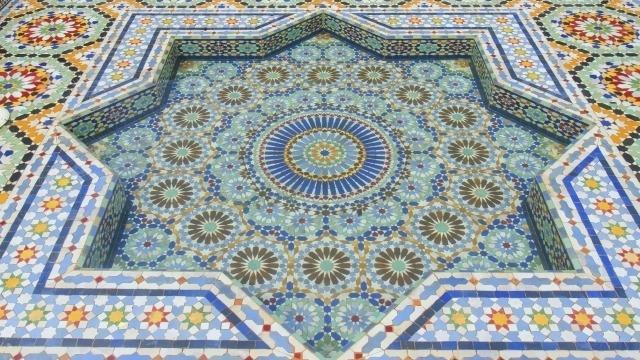The Centre for Arab and Islamic Studies (CAIS) at the Australian National University (ANU) is proud to host the 2018 Conference, ‘Three Languages - Three Cultures: Narratives from the Middle East’, to be held on 22-23 November.
This interdisciplinary conference welcomes academics of all related subject areas and is open to all scholars, students, professionals and members of the public with an interest in the three Middle Eastern languages: Arabic, Persian and Turkish as well as their respective cultures.
Language is a vessel of communication through which humans have defined their worlds and shaped their cultural identities. In fact, every language via the extension of its discourse is engaged in the evolutionary process of the modern world. This conference seeks to provide an insight into the shifting identities of the Middle East, through the lenses of these three widely spoken languages and influential cultures. The conference will delve into the complexity and the diversity of the region and will investigate both the synchronic and diachronic characteristics of the three languages selected. This will reveal new insights into the various aspects of art, culture, gender, identity, language, literature, media and communication, comparative studies as well as language teaching and planning.
This conference, the first in Australia to simultaneously cover these three languages, will ignite your imagination and enrich your understanding of the region. It will include renowned keynote speakers who will examine the rich languages and cultural content of the Middle East: the poetry, calligraphy, art and literature.
File attachments:
| Attachment | Size |
|---|---|
| Three_Languages_-_Three_Cultures_Program.pdf(381.15 KB) | 381.15 KB |
| Accommodation_Canberra.pdf(46.57 KB) | 46.57 KB |
Registration details
Early bird registration (from 1 May to 9 November): $80 or $40 for students.
From 9 November: $100 and $50 for students.
The term 'Orient' and the academic field 'Oriental Studies' pertaining to mainstream 19th and 20th-century Western academia have turned respectively into 'Middle East' and 'Middle Eastern Studies'. The inherent orientalism in the naming of the region as the 'east of the west', situating it relative to Europe, has been increasingly questioned, particularly after the publication of Edward Said’s influential book Orientalism. Yet the region is mostly studied and referred to through the prism of the political and economic implications of regional developments, for outsiders, above all for the Western world. Similarly, topics like extremism, sectarianism, autocratic regimes endemic to the region, oil and energy security, rentierism and ethnic conflicts are abundant in the research on the Middle East. The multiplicity of cultures in the area has been easily stereotyped, mostly as an undesirable 'other', in the political and economic fields of research.
This tendency to view the 'Orient' in simplistic and reductionist terms often overlooks the variety of cultures, the wealth of historical interactions amongst the region’s peoples, the nuances in linguistic manners, and the diversity in the arts. In order to transcend this trend, we believe it is both important and valuable to present academic research in the fields of literature, language, culture, gender, identity and the arts.
The Centre for Arab and Islamic Studies (CAIS) at the Australian National University has, therefore, invited scholars, artists and practitioners to participate in its upcoming conference 'Three Languages - Three Cultures: Narratives from the Middle East' on 22-23 November 2018 in Canberra, Australia. Arabic, Persian and Turkish languages and their respective cultural horizons are the focus of the conference. Comparative and interdisciplinary research, as well as research from a particular discipline and speciality subject areas related to Arabic, Persian and Turkish, have also been included.
Important dates
- Deadline for full papers: 1 November 2018
- Conference: 22 - 23 November 2018
Program
Download the full conference program.
Speakers
Speakers include:
- Dr Stefano Carboni, Adjunct Professor, UWA School of Design, The University of Western Australia
- Professor Associate Professor Hakeem Kasem, Convenor of Arabic Language and Culture Studies, School of Humanities and Social Sciences, Deakin University.
- Dr Ali Mozaffari, ARC-DECRA Research Fellow, Alfred Deakin Institute, Faculty of Arts and Education, Deakin University
- Dr Banu Senay, Lecturer in the Department of Anthropology at Macquarie University, Sydney.
Canberra is Australia's capital and the home of the Federal Parliament and various national institutions such as the National Gallery of Australia, the National Portrait Gallery, the National Library of Australia, Australian Institute of Sport, and the Museum of Australia.
Centre for Arab & Islamic Studies
(The Middle East & Central Asia)
ANU College of Arts & Social Sciences
The Australian National University
Canberra ACT 2601
Contact Details
P: 61 2 6125 4982
F: 61 2 6125 5410
E: cais.conference2018@anu.edu.au
